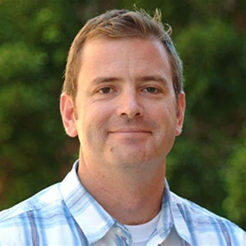报告题目:Using Satellite Remote Sensing and Machine Learning Techniques Towards Precipitation Prediction and Vegetation Classification
主讲人:John Sabo 教授
主持人:高红凯 研究员
报告时间:2019年9月20日 10:30 – 11:30
报告地点:闵行校区河口海岸大楼A304
主办单位:华东师范大学地理科学学院、地理信息科学教育部重点实验室

报告人简介:
Prof. Dr. John Sabo,美国亚利桑那州立大学教授,Future H2O研究中心主任,Julie Ann Wrigley全球可持续发展研究所资深科学家。Sabo教授在水生态、流域管理、水资源可持续利用等学科交叉融合领域多有建树。在Science,PNAS,Ecology Letters,Water Resources Research等发表学术论文120多篇。2017年在Science发表的研究论文“Designing river flows to improve food security futures in the Lower Mekong Basin”被作为封面文章发表。
John Sabo is an ecologist who studies the importance of water in determining the viability and resilience of animal and plant populations in river and riparian ecosystems. He and his research team use large-scale field experiments and the application of stable isotopes to understand how drought and floods influence freshwater and terrestrial biodiversity. They also study how these extreme events affect food web structure.
He also develops statistical techniques to measure the resilience of river food webs and the fisheries that these food webs support. Sabo collaborates broadly across disciplines, synthesizing large datasets to answer questions about the impacts of floods and water scarcity on the interactions between humans and biodiversity.
Professor Sabo’s work is being applied to problems in watershed management and freshwater sustainability to understand how water scarcity and extreme weather influence food security and biodiversity.
主讲人:John Sabo 教授
主持人:高红凯 研究员
报告时间:2019年9月20日 10:30 – 11:30
报告地点:闵行校区河口海岸大楼A304
主办单位:华东师范大学地理科学学院、地理信息科学教育部重点实验室

报告人简介:
Prof. Dr. John Sabo,美国亚利桑那州立大学教授,Future H2O研究中心主任,Julie Ann Wrigley全球可持续发展研究所资深科学家。Sabo教授在水生态、流域管理、水资源可持续利用等学科交叉融合领域多有建树。在Science,PNAS,Ecology Letters,Water Resources Research等发表学术论文120多篇。2017年在Science发表的研究论文“Designing river flows to improve food security futures in the Lower Mekong Basin”被作为封面文章发表。
John Sabo is an ecologist who studies the importance of water in determining the viability and resilience of animal and plant populations in river and riparian ecosystems. He and his research team use large-scale field experiments and the application of stable isotopes to understand how drought and floods influence freshwater and terrestrial biodiversity. They also study how these extreme events affect food web structure.
He also develops statistical techniques to measure the resilience of river food webs and the fisheries that these food webs support. Sabo collaborates broadly across disciplines, synthesizing large datasets to answer questions about the impacts of floods and water scarcity on the interactions between humans and biodiversity.
Professor Sabo’s work is being applied to problems in watershed management and freshwater sustainability to understand how water scarcity and extreme weather influence food security and biodiversity.